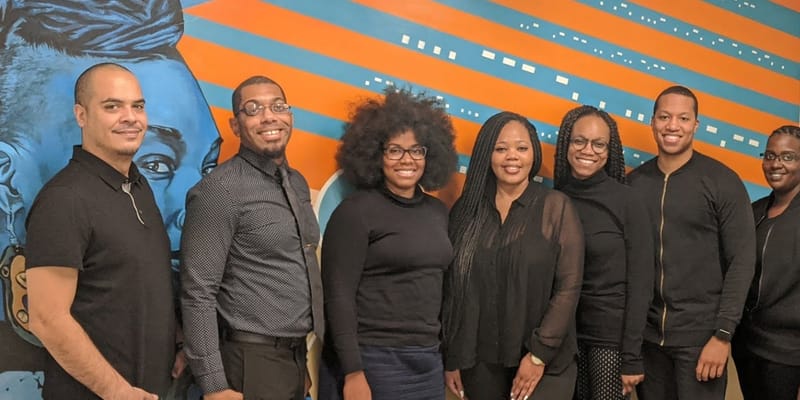Local governments can invest in this strategy using State and Local Fiscal Recovery Funds (SLFRF) from the American Rescue Plan Act (ARPA).
- This strategy can provide assistance to unemployed workers. The U.S. Department of Treasury has indicated that strategies that help achieve this outcome are eligible for the use of Fiscal Recovery Funds.
- Investments in this strategy are SLFRF-eligible as long as they are made in qualified census tracts or are designed to assist populations or communities disproportionately impacted by COVID-19.
Program overview
IT sector employment and training program: Per Scholas provides tech training and professional support at no cost to learners to empower learners transitioning into careers in information technology (IT). There is evidence that the program increases alumni earnings up to 3x.
Full-time, tuition-free program: Per Scholas offers a variety of courses spanning various high-demand IT careers. Typically, courses run 12 - 16 weeks, and participants attend training full-time (40 hours per week) in addition to committing to 20 hours per week of out-of-class studying. All courses are offered at no cost to learners, and the rigorous training prepares learners to launch successful tech careers.
Provide opportunities for individuals typically underrepresented in tech: Participants in Per Scholas’ training need to apply and meet eligibility criteria in order to participate. Participants must be at least 18 years of age, have a high school diploma or GED, be authorized to work in the U.S., commit to full-time training, and be ready to enter the workforce immediately after training. Some campus locations may have additional requirements or target specific groups, such as those who are unemployed at the time of submitting an application.
Training and robust supports for participants: Per Scholas splits training hours between hands-on immersive technical skills (80 percent) with essential professional skills (20 percent) training, ensuring technologists are prepared to effectively communicate, collaborate and manage their time from day one.
Career readiness coaching and job placement services: Per Scholas provides learners with a range of services to promote career readiness and job placement including access to our Business Solutions Team, assistance with mock interviews, resume writing, and job search preparation. After graduating, learners benefit from access to career coaching services and a network of 850+ employer partners across the country.
- Strategies
-
Sector-specific job training
- Cost per Participant
-
Approximately $9,000 per participant (for in-person training)
Two studies with rigorous designs provide evidence that Per Scholas increases participants’ earnings.
- A 2022 research synthesis of two randomized controlled trials found that Per Scholas increased participants' earnings by an average of $4,000-6,000 per year compared to members of the studies’ control groups.
Assess local conditions: Before establishing a training site in a new location, Per Scholas conducts a market analysis to examine the economic impact of their presence. This includes evaluating open IT roles in the market, as well as connecting with local employers, educators, workforce development partners, and community organizations to better understand the conditions of the area. To prepare for the market analysis, local leaders should begin these conversations to identify key stakeholders and evaluate the potential for partnerships with Per Scholas
Recruit for an advisory board: Per Scholas establishes local advisory boards in the areas in which it operates. Typically, these boards include leaders from the technology, government, private equity, and nonprofit sectors. Local leaders can support the development of advisory boards by assisting Per Scholas in identifying board members with a commitment to workforce development in the technology sector.
Support engagement with local employers: Ultimately, Per Scholas empowers learners to prepare for and obtain employment in the IT sector. Local leaders can support this effort by having conversations with area employers. Increasing engagement with local employers can ensure that the skills and certifications included in its training are in demand and relevant to the local market and can lead to increased employment opportunities for Per Scholas alumni.
Champion recruitment efforts: Strong applicants to Per Scholas are those capable of completing training and succeeding in the IT sector but may struggle to find a job without participating in the program. Local leaders can support Per Scholas in identifying strong candidates by championing the program to social services agencies, employers, and other community-based organizations.

